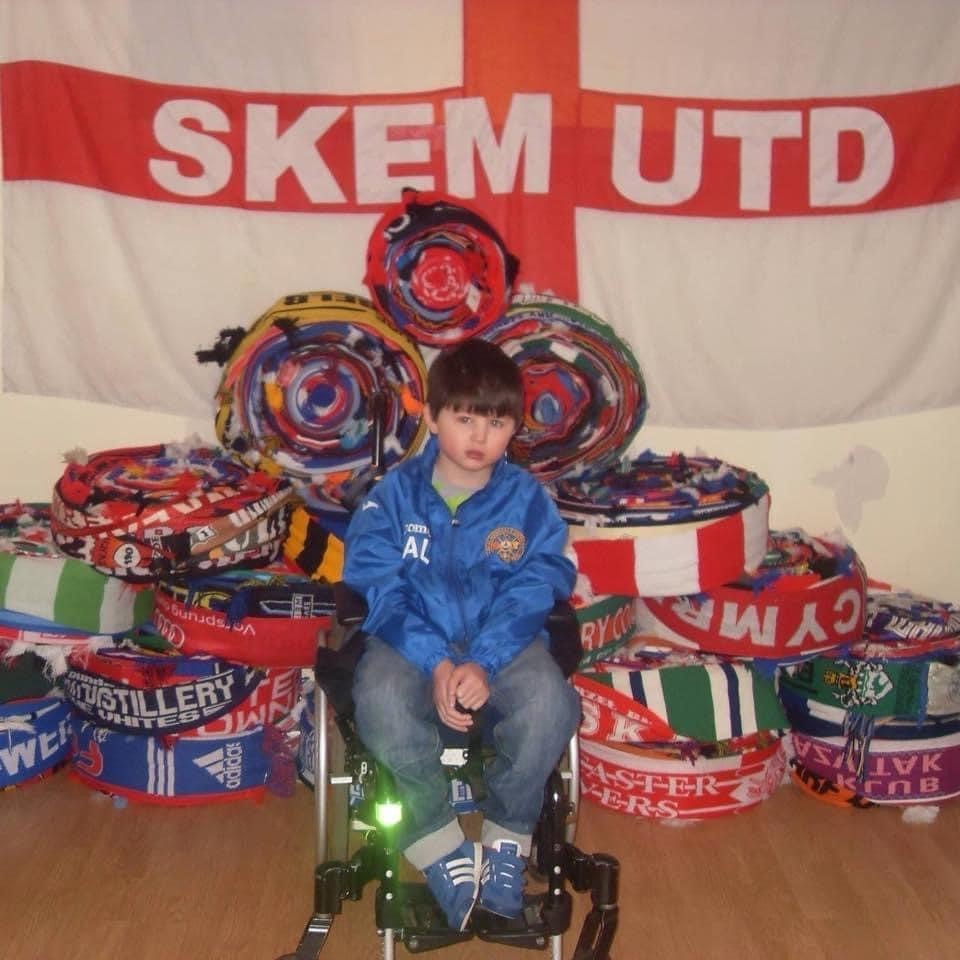What an achievement. 500 games for one club is pretty astonishing, which also makes a very interesting story.
On this day in 2003, Liam Watson was appointed as Southport head coach. There has been ups and downs, just like any career, but as he relays the stories of the early days, it slowly becomes apparent that this club is special.
“The first day that I got the job. When you come out the tunnel, you realise you have actually taken over a big club.” This was what Watson replied when asked about his proudest moment over a stellar Southport career.
After his playing days were halted at the age of just 29, management beckoned. For three years Watson was the head coach of Runcorn FC Halton, a club in which, unfortunately, no longer exists. Runcorn was afoot in the door and a successful one at that, guiding the side to a seventh-place finish during his second season in charge.
However, financial issues struck and Watson called time on his career in Cheshire, as Southport gave him a chance. “It was the biggest club in the area but they had been having a bad time having been relegated out of the Conference.” Said Watson, on why he felt that the west coast was the correct move at that stage on his career.
“Runcorn had sold their ground and money was becoming an issue. They had already sold most of their senior players and were bring youngsters through and it was a perfect time for me to leave and join a bigger club.”
Once he had signed on the dotted line in 2003, he became the youngest manager in Southport’s history. With this, comes pressure, but Watson believes that his short stint in Cheshire set him up perfectly to succeed.
“Age is just a number.” He said. “I think when I went into the job, I already had three years of experience as a manager (which made it easier). When a lot of managers make the leap they are in their 40s with no experience, whereas I was lucky enough to have three years under my belt.
“I was able to deal with the so-called ‘bigger names’ and the fact I already had experience with the younger players, which was what Southport needed, freshness and young blood.”
He was right. The 2004/05 season was special. At the age of just 34, Watson’s first managerial honour was bestowed on him.
“It was brilliant.” He said, talking about the immense feeling of pride claiming that first league title gives you. “We had a really good run to qualify to go up into the Conference North and the after that, we made five very good summer signings and from the moment we got them in, I knew we were going to win the league.
“There were a lot of ups and downs but we got there playing some great football, good young players, loads of goals and we must have been very nice on the eye.”
After all the joys of the previous year, 2006 saw Watson’s first stint on Merseyside take a turn. Southport’s start to life in the fourth tier was an 18th place finish. At that point, the chairman of the club wanted to go full-time, which meant that Watson would have had to give up on his part-time job at Ashworth hospital, something that he found hard to balance in the early stages of his career.
“It was very difficult.” He said, when asked about how he kept the two occupations separate.
“I was lucky in Ashworth that I had supportive managers up until 2008 because by that stage it wasn’t a government job, it was NHS.
“The level of the management that you were dealing with became very poor and it ended up becoming crisis, carnage and by that point really problematic.”
As the 2005/06 season came to a close, going full-time was never an option. This left Watson feeling he was being forced out the club he spent so hard getting to where it was.
“Basically, I got sacked. That season we were struggling and the chairman came out with a statement that we were going to go full-time, which never discussed it with me.
“He must have thought that we were relegated and then once we went we went on a good run and stayed up, it was stuck that we had to be full-time, something that he didn’t even believe in it himself, which is quite ironic.”
His time on the coast came to a sudden and devastating end, however, a fresh start in Burscough was exactly what was needed, becoming one of the most successful managers in the club’s history.
During his first season at Victoria Park, he went on to claim a hat-trick of trophies, including promotion to the Conference North – which incidentally equalled the highest division the club as ever played in.
At the end of the 2007/08 campaign, it was revealed that Watson would resign from Burscough, opting to re-take the open head coach opportunity at Southport. However, the deal took place during very unusual and upsetting circumstances.
“I was working for Chris Lloyds (Burscough Chairman) who I had known since I was a kid and is still a mate today. Unfortunately, he had a brain tumour which was horrendous, but he managed to pull through and at the time his wife, understandably, didn’t want to run the football club.” He revealed to MerseySportLive.
“I did everything right by Burscough, I didn’t want it to become a fire sale and lose all their players which we had managed to bring in.
“At the time, Southport were in crisis. Gary Brabin had left to go to Cambridge and the club was left with five players. So, it fell nicely and I agreed to go back to Southport as the manager and agreed to take 12 players.”
This second chapter was interesting, to say the least. You could argue that this phase of his Southport career was the most successful out of the three. Although, it wasn’t all good, as a relegation battle in 2010/11 nearly put a dampener on things.
“I don’t for one minute ever believe that there was relegation.” Said Watson, as he remembered how that season panned out.
“There has only ever been three teams go down out of the Conference. Everyone knew from January that Rushden and Diamonds would fold and that was in the first season when four allegedly went down.
“In my mind, we were always going to be ok, if we stayed out of that bottom three we would be safe, which in the end was the case.”
However, the success started a year prior in 2009/10. In Watson’s second season back the helm he re-created 04/05 title-winning season, pipping Micky Mellon – who is now in charge of Merseyside rivals Tranmere – to the post in an unforgettable period for the club.
“There was a massive rivalry between Southport and Fleetwood, with both clubs driving each other on. Everyone wanted to beat Fleetwood because they had the money to go out and sign players.
“The chairman there, you have to take your hat off to him because he has done an amazing job, he has massive ambition and he wanted to get the club up the levels, which he still does.
“We never had that ambition at Southport, we were always having to punch above our weight but that was the business plan. In the end, we managed to stick with them and win the league but I think the two clubs and definitely the two managers in me and Micky Mellon drove each other on. I have nothing but praise and admiration for the squad I had (that season) but also I have respect for what Fleetwood did too.”
2010/11 was nervy, but the club pulled through and the next season saw Southport swap flirting with relegation to toying with the playoffs. Watson’s men came inches away from claiming the biggest shock in the clubs history, and in the process, creating a bit of it themselves.
“Unbelievable.” He said, looking back to that quite extraordinary campaign. “To think that we got 76 points in the Conference, 13 away wins, (a record) eight on the bounce. I feel that all of the players matured at the same time, we were exciting to watch and dangerous to play against.”
Nevertheless, it was not meant to be. However, Watson was rewarded with the football writers’ manager of the year, an award that to this day still means a lot to him.
“For myself, I had already had manager of the year awards but to get the football writers’ one and go down to Stamford Bridge for a banquet, it was quite humbling.
“But you only get awards if you have good players, so as nice as it was to go up and collect the award, it was definitely collected as part of the group and that is the way that I looked at it.
“All the lads from 2009, 10, 11, 12 are still a close-knit group with a few of them coming down to the game last Saturday for my 500th, which was really pleasing to see.”
After a vast amount of success in a five-year spell for the Sandgrounders, Watson decided to close his second Southport chapter. However, he reveals that, unlike 2006, full-time was on the table.
“I was at a stage where redundancy was offered in work (Ashworth) and I had discussed it with the chairman. I was also allowed to bring a few projects with me like dementia, which ended up going into Southport and staying there for a few years.
“So, it was agreed that I was going to take the redundancy and take over at Southport full-time. But then, once I had already left Ashworth, I got a text off the chairman saying it was not happening and that was the final nail in the coffin.”

Once his second Southport stint was over, Watson went onto further progress his management resumé, guiding Telford to the Conference North title during his first season.
Then, after two seasons in Greater Manchester with Stalybridge, it was same-old, same-old for Watson, who called time on his management career in 2016.
However, there is a twist in the tale and before he knew it, Southport chapter three was writing itself but in a completely different capacity altogether.
“I had already decided that I didn’t want to manage, I was at Stalybridge Celtic and I didn’t really want to be there. At that time, my son was a scholar and I wanted to give him the two years back because of the numerous years he had given me.
“I remember him being a little kid and been there at all the games, trying to get on the pitch at the end, kicking the ball into the net and getting screamed at.” He said, looking back at the fond memories made during his glittering career.
“So, I wanted to give him it back. But (at the time) Dave Barron and Nigel Allen were getting involved with the club, Dave was a close friend and he really wanted to do it.
“He did an unbelievable job bringing in money, which was something that Southport needed.
“Commercially, they weren’t great because we just kept going back to the same strategy, but Dave was able to go out and get new people in and did a great job for us at that time.
“I was only going to do scouting, which I did in the afternoons. Gradually, as things turned around I was given a title of Operations Director but really, I was just the scout. We didn’t stay on the board, but in theory, we were never on it.”
Watson just couldn’t keep away and it became quite clear that management was his calling. In 2018, Southport needed him, along with his knowledge, experience and stature within the club. The story is unusual, however, the explanation is brilliant.
“I was on holiday in Portugal and I never take my phone out when I am having a few drinks with the lads. I then woke up with a load of missed calls from Phil Hodgkinson. Kevin Davies had left and Phil had rung me because he wanted me to come back and manage the football club.
“At first, it was a bit strange thinking of going back into management, but I think that Southport needed me at the time. We had far too many players, too much money was getting spent and we had to get it in line. I knew the ins and outs of the club, so, it was probably a really good fit.”
500 down, 500 to go? You wouldn’t bet against it. Liam Watson has given his blood, sweat and tears for Southport FC, whilst, giving the Port faithful every emotion under the sun. Now, he looks to the future, with a promotion challenge and maybe a cup run.
“Get the club back in the conference.” He reveals when asked about what lies ahead.
“In both my other spells I managed to get them back up and I don’t see why it should be any different this time around. I would also like to have a run in the FA Trophy, the competition has never been kind to me, I have lost four times in the quarter-finals. So, I would like a run in that trophy.”
(Images – credit – Julia Urwin, Southport FC)

















